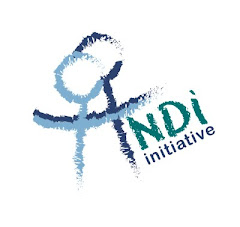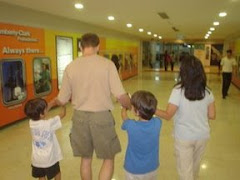Because Luke was moving away, we had only 4 weeks to work on our goals, mid-July until mid-August, 2014. This ended up being a module of 6 sessions at 1.5 hours each time. In addition to this face-to-face time, therapists who worked with each boy also reinforced some of the goals about once or twice a week on other days, in a 1:1 setting (therapist and child).
Goals were listed as:
A. Physical Coordination
- matching/adjusting one's body movements (speed, direction) to that of another peer
-practising sustained attention to another peer
-practicing working towards a common goal with the peer (rather than parallel actions)
B. Being Flexible
(a huge indicator of ability and predictor of school/life success)
- flexible about whose turn it is in an activity
- flexible in choice of activity
- tolerating disliked activities
- living with the "unknown" (you can be OK not knowing what's coming up next)
C. Personal Space
- practicing adjusting "just right' distance between 2 people
- practicing that what is "just right" depends on the activity/context and is not fixed (static).
D. Losing Gracefully (at a game)
E. Reciprocating Statements
- Congrats / Thank you
-Thank you / You're welcome
- Sorry / It's OK
F. Conversation Skills (goal during snack time)
- Statement - Statement
( example: "I like juice." "Well, I like water.")
- Question - Response
(example: "Can you help me open this?" "Sure!")
*The goal was to encourage both responding to a statement/question from a peer, and also to initiate statements/questions spontaneously.
G. Interviewing Skills
-finding out about each other.
Above: Coordinating my actions to my friend's actions, so that we can reach a common goal (aligning and gluing the snake pieces.)
Whether it's carrying and putting away a heavy box of toys together.....
....or carrying chairs to set up the snack table, these activities help the boys learn to focus on the movements (speed, direction) of each other, and continuously adjust their own actions. Sustained attention to another person is a challenge for many children on the spectrum. Activities like the above can help.
Finding Out About Each Other: A little was done at every session. Each boy learns that other person have realities and interests different from his own ("Oh, he has a sister, but I don't. And guess what, he doesn't have a brother, but I do." "He likes cars but I like animals." "His mum has a different name from my mum.") Many children on the autism spectrum have challenges with understanding/accepting Other People's Perspectives. This activity can nudge that awareness along.
At the end of the 6 sessions (across 4 weeks), we could see some progress (defined by the reduced need for scaffolding/prompting by adults) in most* of the areas. However, it is clear that a longer module would have helped even more!
All the best, "Robert" and "Luke"!
*we did not have time to work on the Personal Space goal at all.


















No comments:
Post a Comment